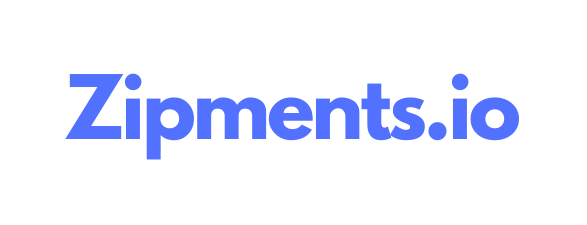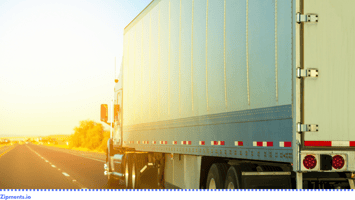The United States is the largest market for imported goods. No matter what your business may be,...
Essentials To Keep In Mind When Importing Into The United States
In the modern world, international trade has become increasingly important. The United States is a major market, but importing goods into the country is certainly not a one size fits all process. When importing into the U.S., it's important to be aware of how US customs works and how you can avoid delays which may affect your business. Customs can be confusing, but with a little knowledge and preparation, you can successfully import and grow your business.
.png?width=1280&height=720&name=Orange%20Modern%20Minimal%20Blog%20Writing%20YouTube%20Thumbnail%20(8).png)
Take Advantage of Technology
In today’s day and age, it is important to go digital in order to simplify the customs process. Importing using technology allows for an easier method of organizing and storing all essential documents, and it ensures that documents are not lost or misplaced. When you use platforms like Zipments.io, you can also access the use of AI technology which automatically generates a tariff code for your customs invoice, allowing for greater accuracy in the process. Remember that an accurate HS code or tariff is essential in calculating duties and taxes, so the CBP requires precision on this.
Technology also allows certain tasks associated with customs clearance to be automated, saving both time and money. Software can be used to provide notifications of important timestamps in the customs clearance process, such as when to file certain documents and access your border clearance status. It's quicker and easier to keep track, electronically.
Get Familiar With The Customs Bond
When importing to the U.S., you will need to familiarize yourself with a customs bond, as you will likely need one at some point in time. A customs bond is a surety bond which the CBP (Customs and Border Protection) required for goods valued at over $2500 USD. The only time you would not necessarily need one is if you are importing using a Temporary Importation Bond or the goods are gifts/personal effects, but remember to research first before assuming which category your goods fall into.
You can obtain a bond through a customs broker or surety company. The customs bond ensures to the government that duties, taxes or fees on a shipment will be paid, and there are two types depending on how often you import.
- A single-entry bond is used for a one-time shipment and shipments in value of less than $50,000 USD. You will need to apply for a new one on each entry, as it can only be used once.
- A continuous bond helps cover multiple shipments over the course of a year, and you can use it at any port of entry. The bond is calculated at 10% of total duties/taxes or fees paid in the last year or coming year, and it holds a minimum bond value of $50,000.
Obtain Appropriate Licenses or Permits
Depending on the types of goods you are importing, sometimes you may need to obtain special permits or licenses, from agencies other than the CBP. For example, if you are importing food products or cosmetics, then you may look into FDA approval and permits. The CBP has outlined a list of government agencies which may require special permits or certification for import into the U.S. and you can access it here: Importing Into the United States.
Understand the Customs Clearance Process
If you are working with a customs broker, then much of the clearance process will be completed and aided by them, so you will not need such detailed knowledge. However it helps to understand the customs clearance process, whether you are importer of record or not, in order to know what is happening and ensure things are going smoothly.
- When importing to the U.S., you will want to know how to obtain the customs bond, and fill out your customs invoice and packing list. Any duties and fees are calculated based on factors such as shipment value and where it is coming from. It may help to understand your goods well so that you can know whether your shipment requires prior notice of shipment, such as if you are dealing with the FDA. Some added fees may come up if the shipment needs to be stored for inspection or there is further examination as well.
- You will need to understand the ISF (Importer Security Filing), and ensure that it is filed no later than 24 hours before the cargo is loaded onto the vessel for transport into the United States. This filing is required for goods arriving into the U.S. or passing through, as it provides key information about the shipment. The ISF importer is most likely the consignee, purchaser, goods owner, or the licensed customs broker.
The customs process can be complex, so it is important to utilize technology and choose the right partners to work with. Choose a supplier you trust, as you want to avoid importing knock-off products or those where intellectual property rights belong to somebody else, as the U.S. is strict on these matters and your shipment may be destroyed.
-1.png?width=1200&height=400&name=Ivory%20Elegant%20Summer%20Fashion%20Blog%20Banner%20(1)-1.png)
Consult With a Licensed Broker
When importing into the U.S. you will need a customs broker on the side of the border you are importing to. You can handle your own imports, legally, but hiring a customs broker can help alleviate some worries and ensure that the shipment clears customs quicker. Vet your broker and ensure that they are licensed and have experience in clearing your type of goods, ideally. A customs broker can help ensure that your shipment complies with up to date regulations, which is significant for the import process.
You can access a list of verified U.S. customs brokers using the Zipments Broker Directory.
Label Goods Accurately
Labelling requirements are significant for both U.S. and Canadian imports. The United States has a specific rule or outline set out when it comes to labeling requirements for commercial goods, including for food products (showing weight in ounces). Your goods will be rejected if they are not in compliance with the standards, so proper research is important.
You can access the CPSC database to look into statutes pertaining to different products. There are also requirements pertaining to the marking of the country of origin, which you can find on the CBP website.
Keep Up With Regulations
The United States can be strict on the import of goods, and there are regulations in place to ensure safety and security. You may need to research relevant acts or regulations pertaining to your goods, in order to stay in compliance. For instance, the FDA will outline regulations for food imports, while the Flammable Fabrics Act would rule over the import of any fabrics into the U.S., so it is important to research your goods and the up to date regulation that may apply to your shipment. Violation of regulations can result in penalties, loss of shipment or fees.
Know the Quotas
The U.S. is quite specific about using import quotas as a way to manage what enters the country. This helps them control the volume of certain commodities, within a specific period of time. In the U.S. there are two primary types of quotas which apply; the tariff-rate quota, which permits a specified quantity of goods to enter at a reduced rate of duty, and once the quota is reached then the goods may still enter at a higher duty rate. An absolute quota limits the quantity of goods which may enter during a specific period.
You can research the quotas on the CBP website here, or allow a customs broker to do that for you.
It's not always easy to import products into the United States. It's beneficial to know about the factors that make it complicated, but also how you can simplify your process. The problem with importing goods from other countries is that they come with a lot of paperwork and customs fees. However, with the help of the right partners, software and preparation, you can complete the task a little more easily.


.jpg?height=200&name=White%20Minimalist%20Aesthetic%20Magazine%20Photography%20Portfolio%20Presentation%20169%20(19).jpg)

